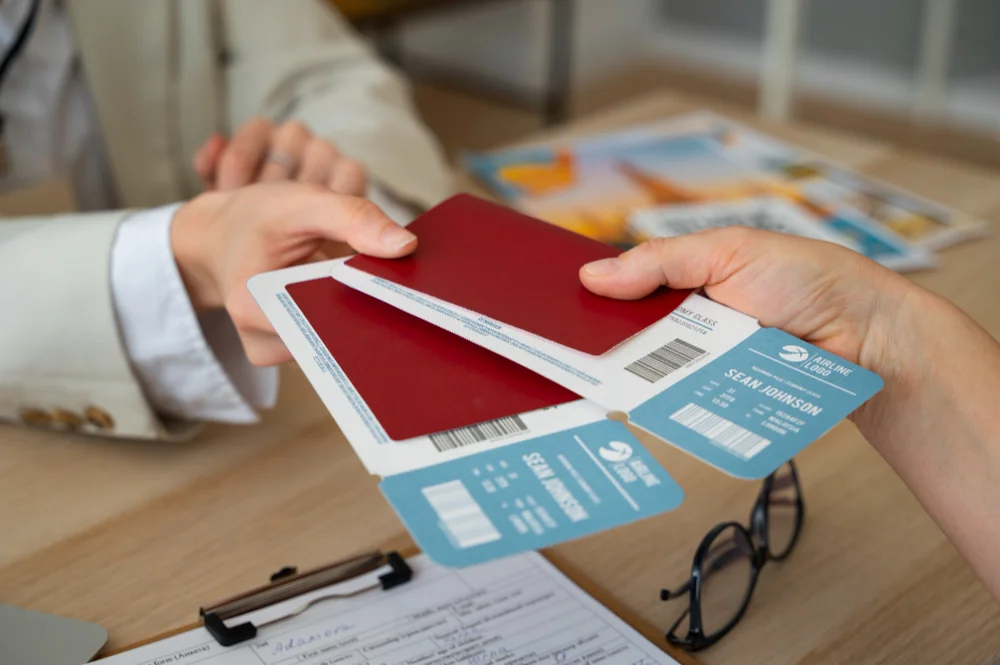
Introduction
Thailand is a popular destination for tourists, businesspeople, and those looking to live abroad. However, understanding the regulations regarding Thai visas and Thai work permits is crucial for legal residence in Thailand. This article will provide essential information about visa types, work permit application procedures, and the latest policy changes to help you prepare for your trip or relocation to Thailand.
Thai Visa and Work Permit: Basic Requirements for Foreigners
Understanding Thai visas and Thai work permits is essential for foreigners wishing to stay in Thailand, whether for tourism, work, or retirement. Thailand’s visa system offers various types to accommodate different travel purposes, while work permits are necessary for foreigners who want to work legally in Thailand.
Tourist visas are suitable for short-term visits, with options including visa exemption programs, visa on arrival, and single or multiple-entry tourist visas. For those seeking long-term stays, non-tourist visa types such as business visas, education visas, retirement visas, and marriage visas are more appropriate.
Regarding Thai work permits, foreigners need a registered Thai employer to support their work permit application. This process involves submitting numerous documents, including proof of qualifications and work experience.
Tourist Visa Options
Thailand offers various tourist visa options to accommodate different traveler needs:
- Visa Exemption Program: Citizens from many countries can enter Thailand without a pre-arranged visa and stay for up to 30 days (45 days for some countries).
- Visa on Arrival: Tourists from certain countries can obtain a visa upon arrival at Thai international airports, allowing a maximum stay of 15 days.
- Single-Entry Tourist Visa: Allows for a stay of up to 60 days, extendable for an additional 30 days.
- Multiple-Entry Tourist Visa: Valid for 6 months, allowing multiple entries with each stay up to 60 days.
For the latest information on visa requirements, check the Thai Ministry of Foreign Affairs website.
Non-Tourist Visa Types
For those looking to stay in Thailand for extended periods, non-tourist visa options include:
- Business Visa (Non-B): For those intending to work or conduct business in Thailand.
- Education Visa (Non-ED): For students, scholars, or those attending short-term courses.
- Retirement Visa (Non-O-A): For individuals aged 50 and above wishing to retire in Thailand.
- Marriage Visa (Non-O): For foreign spouses of Thai citizens.
Each visa type has different requirements and necessary documents, so it’s advisable to check the latest information from Thai embassies or immigration offices.
Important Information about Thai Work Permits
Obtaining a Thai work permit is a crucial step for foreigners wishing to work legally in Thailand. Here’s important information to know:
- Eligibility Criteria: Must have a valid non-immigrant visa (typically Non-B) and a registered Thai employer.
- Required Documents: Include employment contract, educational certificates, work history, and company financial documents.
- Application Process: The employer must submit the application on behalf of the employee to the Department of Employment, Ministry of Labor.
- Processing Time: Generally takes 7-10 working days but may vary depending on workload.
- Renewal: Work permits must be renewed annually or according to the employment contract duration.
- Restrictions: Work permits are valid only for the specified job position and employer. Changing jobs requires a new work permit.
Long-Term Resident Visa Program
Thailand has launched the Long-Term Resident (LTR) visa program to attract highly skilled and high-income foreigners. This program offers several benefits:
10-year visa and work permit
Digital 90-day reporting
Flat personal income tax rate of 17% for highly skilled professionals
No Thai-to-foreign employee ratio requirement
Target groups for the LTR visa include:
- Global talent
- Wealthy retirees
- Work-from-Thailand professionals
- Highly skilled digital professionals
Each group has specific qualification and income requirements. Interested parties should check the latest information from the Board of Investment (BOI).
Digital Nomad Visa
Thailand is considering launching a Digital Nomad visa to accommodate remote workers and long-term tourists. Although not officially announced, it’s expected to be part of the Smart Visa program and may include:
- Longer stay duration (possibly up to 1 year)
- Minimum income requirements
- Flexibility to work for foreign companies while staying in Thailand
- Exemption from work permit requirements for certain business activities
Interested individuals should monitor official announcements from the Thai government regarding details and launch dates for this visa type.
Common Challenges and Solutions
Foreigners residing in Thailand may face some challenges. Here are common issues and solutions:
- Overstay penalties: Avoid staying beyond the permitted period, as it may result in fines and entry bans. Check visa expiration dates and apply for extensions if necessary.
- 90-day reporting: Foreigners staying over 90 days must report to immigration. Use the online reporting system for convenience.
- Visa extensions: Prepare all necessary documents and apply for extensions before visa expiration.
- Changing visa types: Generally requires leaving the country to apply for a new visa. Plan ahead and consult immigration offices or Thai embassies for advice.
Latest Changes in Thai Immigration Policies
Thai immigration policies are continuously evolving to respond to changing situations. Recent significant changes include:
- COVID-19 impact: Changes in health requirements and quarantine for incoming travelers.
- Tourist visa extensions: Temporary increase in stay duration for tourists from certain countries.
- New visa programs: Introduction of LTR visa and consideration of Digital Nomad visa.
- Online system improvements: Increased online services for visa renewals and 90-day reporting.
Follow official announcements from the Immigration Bureau and Ministry of Foreign Affairs for the latest policy changes.
Tips for a Smooth Application Process
To ensure a smooth application for Thai visa and Thai work permit, follow these tips:
Prepare a checklist:
- Gather all necessary documents in advance
- Ensure all documents are in English or have certified translations
- Make copies of all important documents
Apply early:
- Start the application process at least 1 month before your current visa expires
- Consider public holidays that may cause delays
Seek professional help:
- Consider using an experienced visa agent for complex cases
- Consult an immigration lawyer if you have legal questions
Stay updated regularly:
- Check official websites of relevant authorities for the latest information
- Subscribe to newsletters or alerts about policy changes
Learn from others’ experiences:
- Join online groups for expatriates in Thailand
- Exchange information and tips with those who have gone through the process
Avoiding common mistakes, such as providing incorrect information or submitting incomplete documents, will save time and hassle in the long run.
Frequently Asked Questions
Foreigners residing or working in Thailand often have questions about Thai visas and Thai work permits. Here are some common questions and answers:
Can I work in Thailand with a tourist visa?
No, working on a tourist visa is illegal. You need an appropriate non-immigrant visa (e.g., Non-B) and a valid work permit.
Can I change from a tourist visa to a work visa without leaving Thailand?
Generally, no. You need to exit Thailand and apply for a non-immigrant visa at a Thai embassy abroad. However, exceptions may exist in some cases, subject to immigration officials’ discretion.
Do I need a Thai work permit if I’m working remotely for a foreign company?
Legally, even if you’re working for a foreign company, if you’re working in Thailand, you still need a valid work permit. However, the government is considering a digital nomad visa that may change this requirement in the future.
When can I apply for a retirement visa?
You can apply for a retirement visa (Non-O-A) if you’re 50 years or older and meet the financial and health insurance requirements.
Does marrying a Thai guarantee me a long-term visa?
No, it doesn’t guarantee it. While marrying a Thai citizen makes you eligible for a marriage visa, you still need to meet other requirements, such as proving income and regularly renewing your visa.
What kind of work can I do with a Thai work permit?
A Thai work permit specifies the job position, employer, and work location you’re authorized to work in. You can’t work outside of what’s stated in your work permit. If you want to change jobs, you need to apply for a new work permit.
Conclusion
Understanding Thai visas and Thai work permits is crucial for foreigners wishing to stay or work in Thailand. Whether you’re a tourist, business person, retiree, or digital nomad, choosing the right visa type and adhering to the requirements will ensure your stay in Thailand is smooth and legal.
With ongoing policy changes and the introduction of new visa programs like the LTR visa and the upcoming digital nomad visa, Thailand is adapting to attract foreign talent and investors. However, it’s important to stay updated on the latest changes and consult official sources to ensure you comply with all requirements.
Planning ahead, preparing all necessary documents, and familiarizing yourself with the processes will help make your transition to life in Thailand easier. Remember that immigration laws can be complex, and when in doubt, it’s always best to seek professional advice.
บทความ อื่นๆ
LAWYER MAN & PARTNERS
เราพร้อมที่จะช่วยเหลือคุณในการแก้ไขปัญหาทางกฎหมายของคุณ
เรารู้สึกว่าจำเป็นต้องทำลายกรอบความสัมพันธ์ระหว่างทนายกับลูกค้าแบบเดิมๆ เรามุ่งมั่นที่จะเป็นมิตรและเข้าถึงง่าย พร้อมทั้งติดต่อสื่อสารกับลูกค้าอยู่เสมอ
- +66 96-916-4251
- lawyerman.metapon@gmail.com








